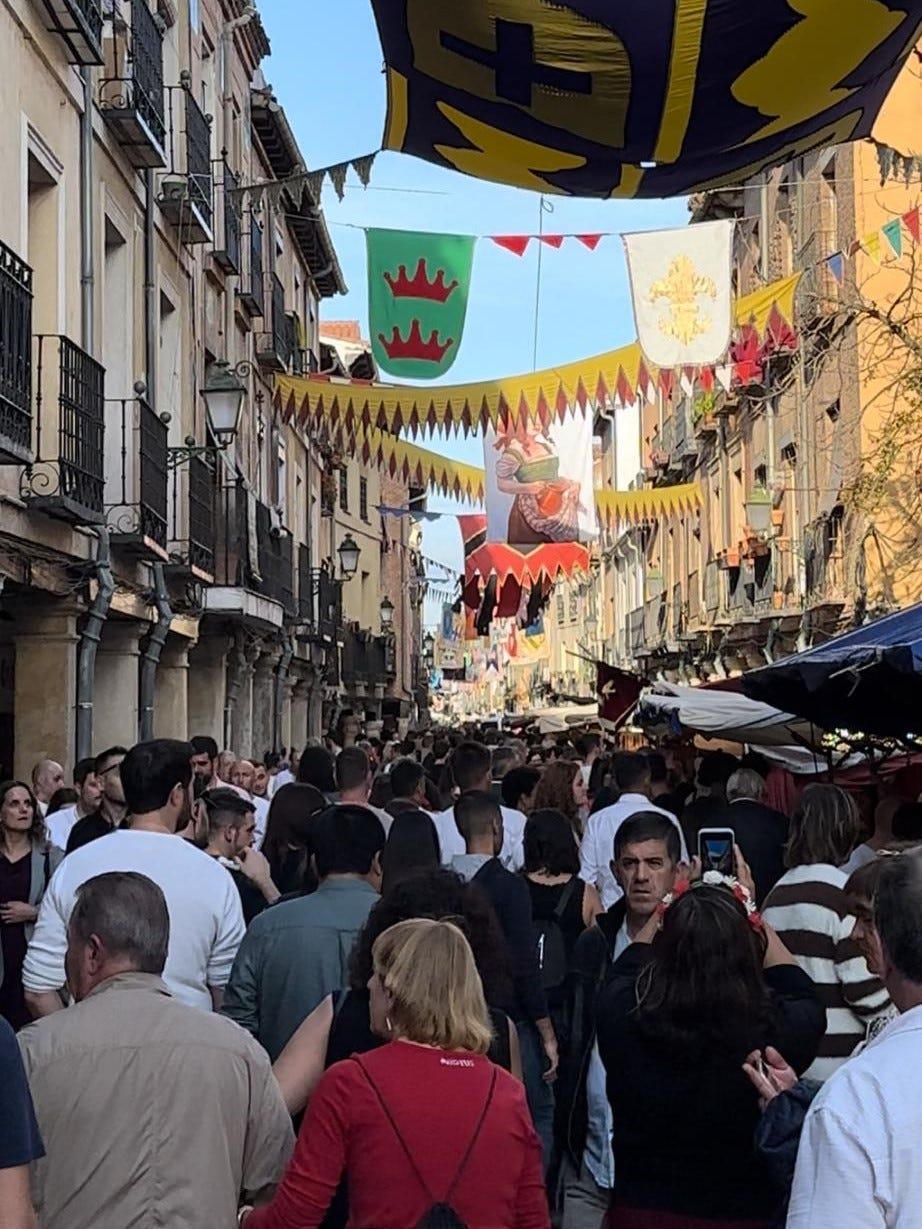Alcalá de Henares and Azul
Two cities connected by Cervantes, literature, and a pinch of madness.
We walked hand in hand so as not to lose each other. The Cervantine Market in Alcalá de Henares was overflowing with people, and we had no choice but to let ourselves be carried by the tide, even though we had no idea where we were going. It was the last day of Cervantine Week, which commemorates the baptism of Miguel de Cervantes (1547–1616), the author of Don Quixote. I had been told it was the largest market in Spain, with hundreds of stalls selling crafts, food, and drinks. But there were so many people that stopping to shop was almost impossible because it meant moving against the current of people dictating the pace.
Since I could hardly see to the sides, I focused on the signs and decorative garlands on the balconies, until the sound of bagpipe music made me look down and witness a miracle. The melody seemed to have the power of the Prophet Moses, parting the sea of people to make way for the musicians leading the parade of Don Quixote and Sancho Panza.
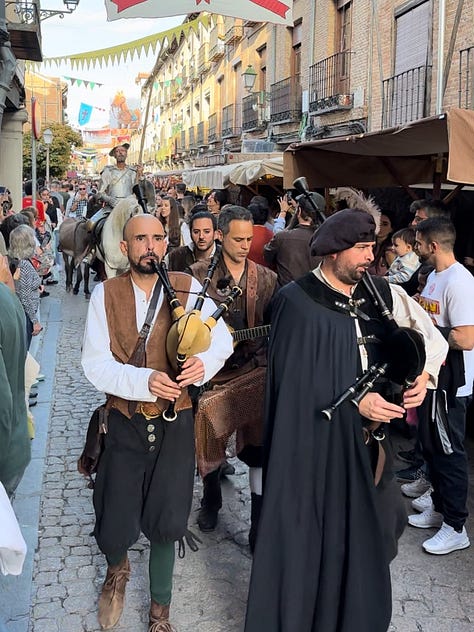
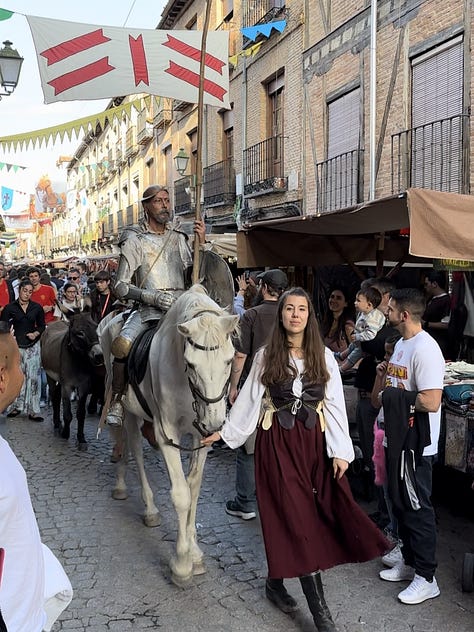
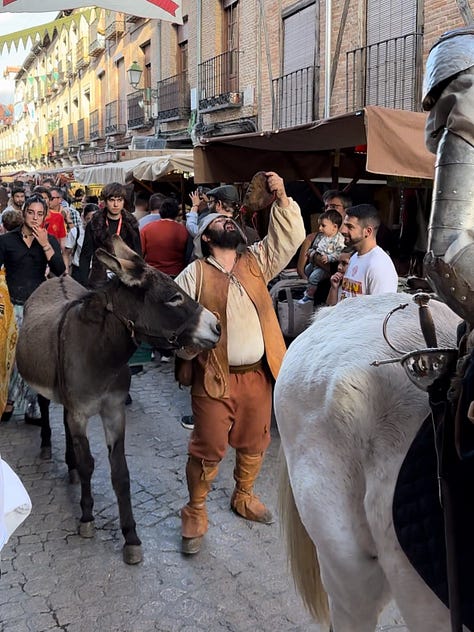
Alcalá de Henares is located 45 minutes from Madrid and was declared a UNESCO World Heritage Site in 1998. What earned it such an honor?
Alcalá de Henares is considered the first planned university city of the Modern Age.
The University of Alcalá has been and continues to be a disseminator of knowledge and language.
It is the birthplace of Miguel de Cervantes Saavedra, author of The Ingenious Gentleman Don Quixote of La Mancha. His birth house is now a museum, which I couldn’t visit that Sunday because the line was blocks long, but it’s a good excuse to return to Alcalá.
Did you know Don Quixote is considered the first modern novel and is one of the most translated books in the world?
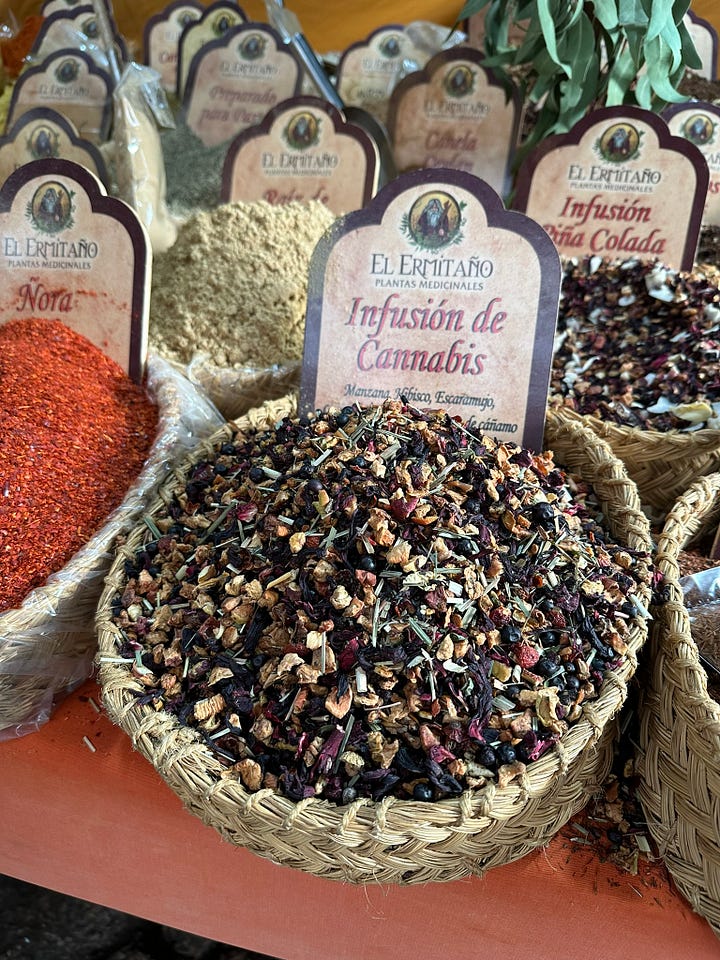
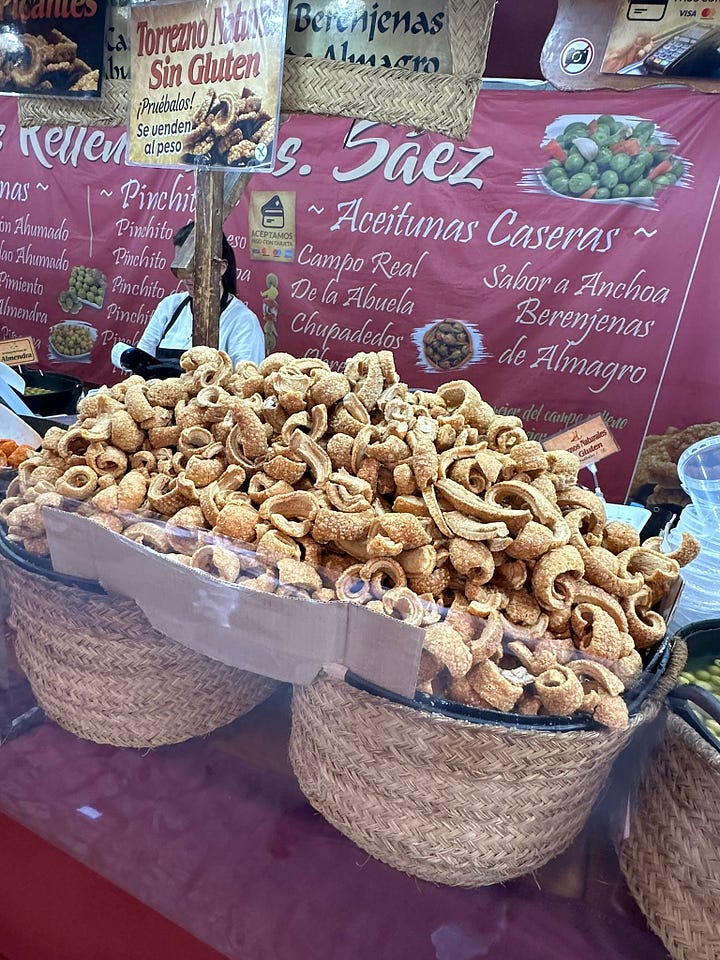
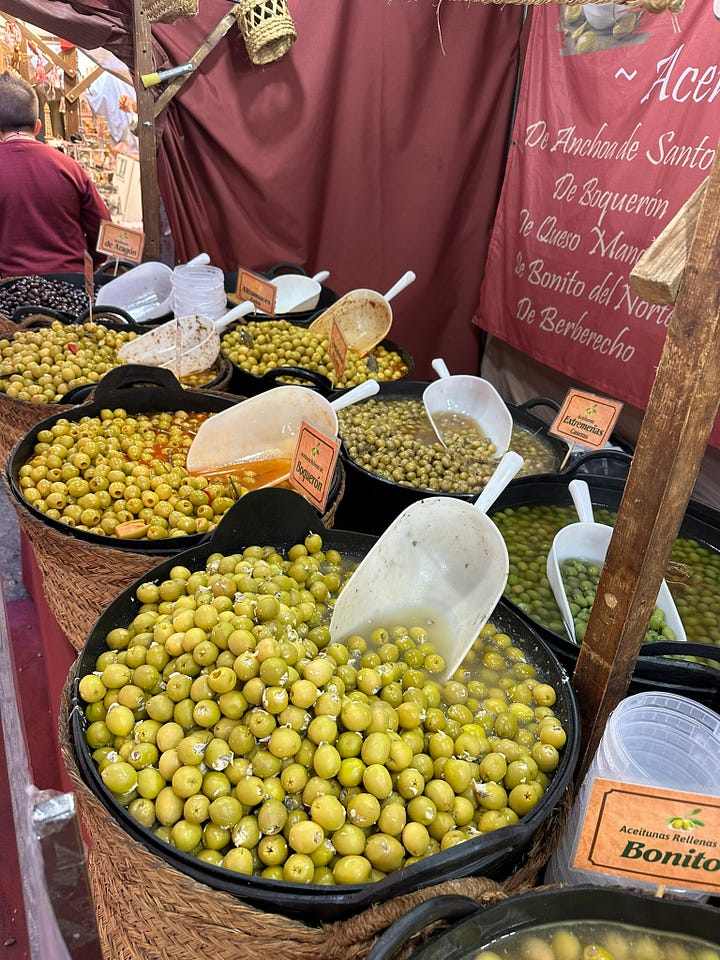
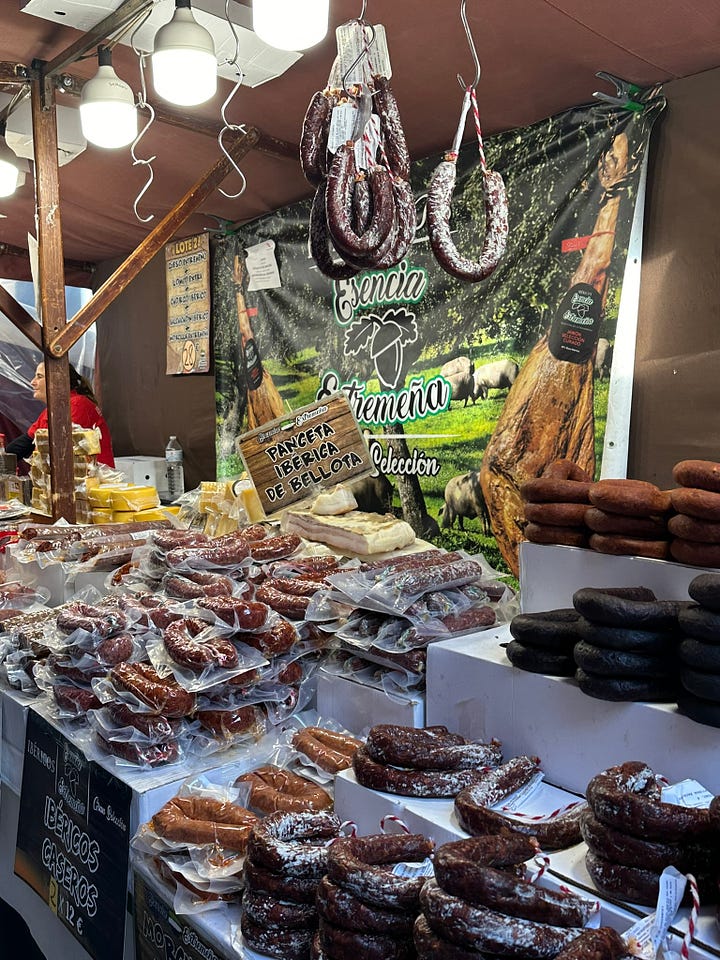
A few years ago, I traveled to Azul, a city in the province of Buenos Aires, located about 186 miles from the capital and more than 6,213 miles from Alcalá de Henares. My grandfather was born, grew up, and worked in Azul until the national telephone company transferred him to the city of Junín. There he met my grandmother, and the rest is history. Our family lost its connection with Azul until the summer of 2015, when I decided to visit a friend who lived in that city. While there, I took the opportunity to see the house where my grandfather had lived and the club where he spent his afternoons playing cards.
But what does Azul have to do with today’s post?
During that trip, my friend told me that UNESCO’s Castilla-La Mancha center had recognized Azul as Argentina’s Cervantine City in 2007. Why? Because it houses the largest collection of editions of Don Quixote—around 500 copies. The collection was started by a lawyer named Ronco, a man crazy about Don Quixote, and today it is one of the most important Cervantine collection in the Americas.
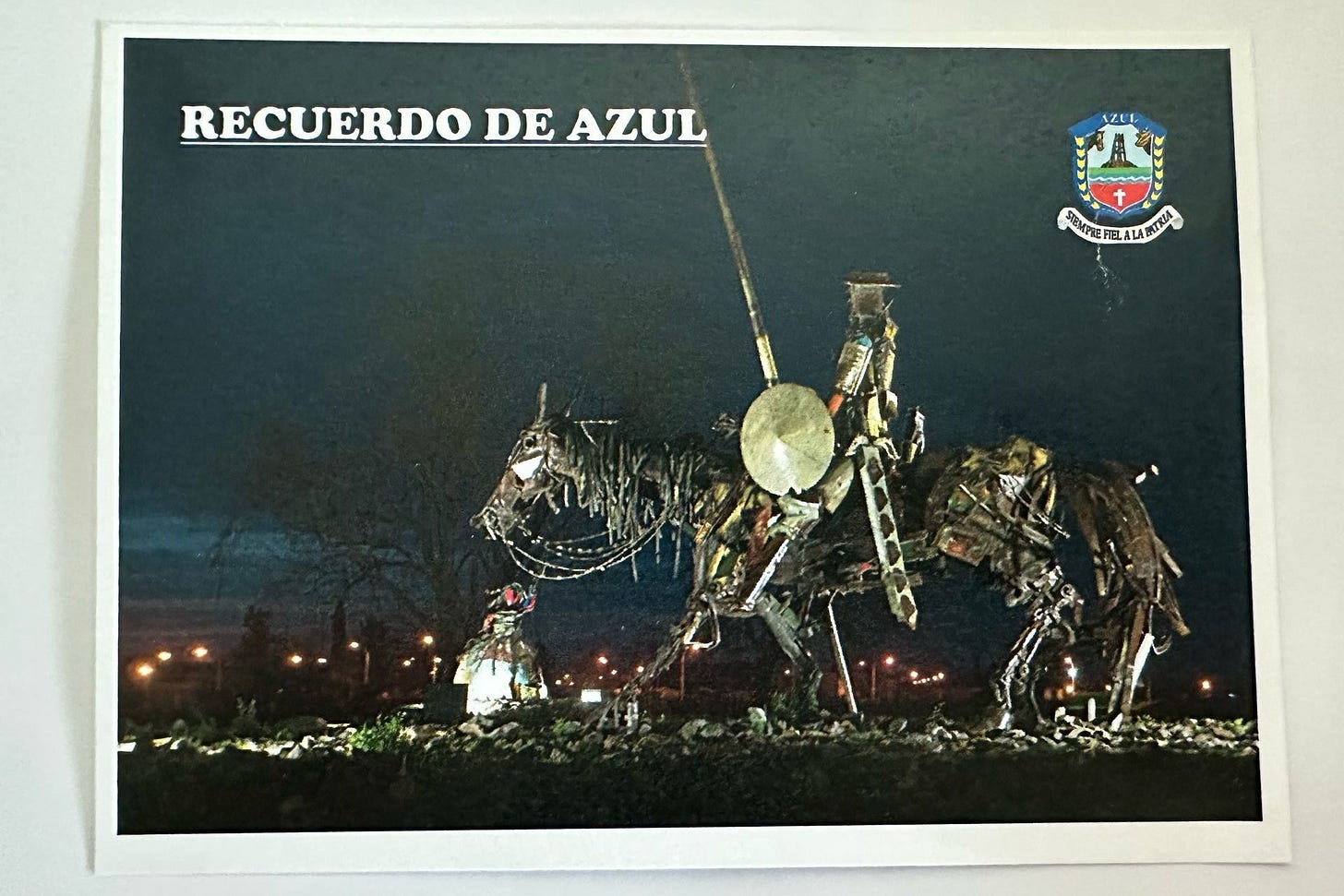
Alcalá and Azul are separated by the Atlantic Ocean, but they share the first letter of their names and the celebration of the life and work of Cervantes. On the anniversary of his death, April 23, it is the World Book and Copyright Day and the Spanish Language Day at the United Nations.
Every year I remember this date because books, the Spanish language, and (a little bit of) Don Quixote’s madness are part of my essence, my identity. But I’m not alone; I think many of us carry something of Don Quixote in us—a common man who, after reading so many books of chivalry, believed himself to be a knight, and one day decided to set out on his adventures, deaf to those who said he was crazy.
I’m convinced that we need a pinch of madness to make certain leaps and decisions in life—choosing a career, moving to a new city or country, starting a business your circle has already condemned as doomed to fail, or sharing stories and thoughts on a corner of the internet called Substack.
This week, I invite you to reflect on those moments when, like Don Quixote, madness made you think you could carry out a heroic achievement and, against all odds, you succeeded.
Are you wondering whether you should read Don Quixote? Check out this TED-Ed video.
If you came across this newsletter by chance, subscribe to receive my upcoming emails.
If you like what I write and want to help this project grow, you can share A Platypus Life with others.
If you enjoyed this story, please let me know by liking or commenting below. I really value your opinion, and your comments help this space improve and thrive.
Until next time!
Maria Pia




